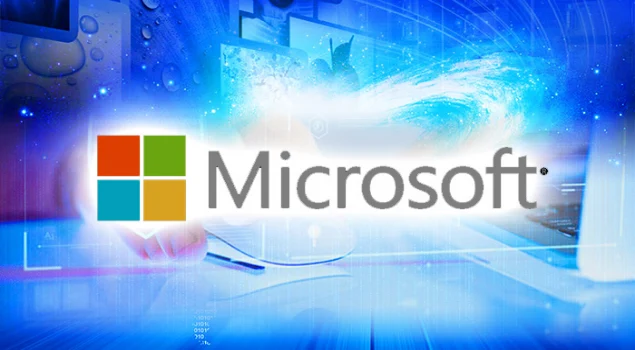15
+
YEARS OF
EXPERIENCE
1000
+
SUCCESSFUL
Projects
80
+
Satisfied
Clients

In today’s business landscape, cloud services have become integral to driving innovation, collaboration, and scalability. Microsoft Cloud Solution Provider (CSP) Licensing is a flexible and streamlined licensing model that offers businesses the ability to access Microsoft’s suite of products and services through managed service providers (MSPs). This licensing model has gained significant popularity among organizations looking for cost-effective ways to leverage Microsoft’s cloud technologies while outsourcing the management of their cloud environment. But what exactly is Microsoft CSP Licensing, and how does it work? In this article, we’ll explore the key features, benefits, and considerations of Microsoft CSP Licensing, helping IT professionals understand its value and how to implement it effectively.
What is Microsoft CSP Licensing?
Microsoft Cloud Solution Provider (CSP) Licensing is a cloud-based subscription model that allows businesses to access a wide range of Microsoft products and services through an authorized partner, known as a Cloud Solution Provider. The CSP program offers organizations access to cloud services like Microsoft 365, Azure, Dynamics 365, and Power Platform—all available on a subscription basis.
The CSP licensing model enables businesses to purchase these services directly from a managed service provider rather than from Microsoft itself. This offers several advantages, such as the ability to bundle services, customize billing, and access enhanced support. CSPs serve as intermediaries between Microsoft and the end customer, helping manage licensing, provision services, and provide ongoing support.





Key Features of Microsoft CSP Licensing
The Microsoft CSP program offers flexibility and scalability, allowing businesses to choose the products, features, and services that best fit their needs. One of the primary features of the CSP program is its subscription-based model, which eliminates the need for large upfront capital investments in licenses. Instead, customers pay for the services they use on a monthly or annual basis, making it easier to scale up or down as their needs evolve.
Another important feature of CSP Licensing is customizable billing. With traditional Microsoft licensing models, customers typically pay for licenses in bulk, which may result in overpayment or underutilization of services. In the CSP model, businesses can purchase exactly what they need, with the option to adjust their subscriptions as their usage fluctuates. This offers better cost optimization and reduces wastage, making it a more financially efficient option.
The CSP model also simplifies license management and provisioning. CSP partners are responsible for managing the subscription lifecycle—everything from purchasing licenses to provisioning and deactivating services. This hands-off approach allows IT teams to focus on other business-critical tasks while relying on their CSP partner to handle the technical aspects of licensing and cloud services.
Products and Services Available Under CSP Licensing
The Microsoft CSP program provides access to a variety of Microsoft products and cloud services, including but not limited to:
- Microsoft 365: The suite of productivity tools that includes Word, Excel, PowerPoint, Outlook, Teams, OneDrive, and more. CSP Licensing allows businesses to access Microsoft 365 subscriptions on a per-user basis, making it easier to manage user access and customize plans based on specific needs.
- Azure: Microsoft’s cloud platform for computing, networking, databases, and AI. With CSP Licensing, businesses can access a variety of Azure services, from virtual machines to containerized applications, all on a pay-as-you-go basis.
- Dynamics 365: A suite of cloud-based business applications, including customer relationship management (CRM) and enterprise resource planning (ERP). CSP partners can offer subscription-based access to these powerful tools, providing businesses with more flexibility in managing their operations.
- Power Platform: Includes tools like Power BI, Power Apps, Power Automate, and Power Virtual Agents. CSP customers can build custom apps, automate workflows, and analyze data to drive business insights.
Additionally, CSP partners can offer Windows 10 and Windows 11 licenses, providing customers with access to Microsoft’s operating system alongside cloud-based services. The CSP model allows customers to combine products into bundles, making it easy to tailor subscriptions to specific business needs.
Cloud Technologies
Advanced cloud technologies to enhance scalability, performance, and collaboration, transforming how your business operates.Azure and AWS
Leverage Azure and AWS cloud platforms for powerful, scalable solutions to meet your business needs.Hybrid Cloud
Hybrid cloud solutions combining on-premises and cloud infrastructure for greater flexibility, security, and scalability.
Benefits of Microsoft CSP Licensing
There are several compelling benefits to adopting Microsoft CSP Licensing, especially for organizations looking to optimize their cloud environment while maintaining control over costs and resources.
1. Cost Flexibility and Predictability
With the CSP model, businesses can benefit from a subscription-based pricing model, which offers cost flexibility. Instead of paying a large upfront cost for perpetual licenses, customers pay monthly or annually based on usage. This makes it easier for businesses to align their cloud expenses with their budget and cash flow.
CSP partners also offer customized billing, allowing businesses to group subscriptions and services together for easier management. This level of control helps organizations avoid overpaying for licenses they don’t need or underutilizing resources. Plus, CSPs can adjust subscription levels as business requirements evolve, ensuring that companies are only paying for the services they use.
2. Simplified License Management
Managing cloud licenses can be complex, especially for large organizations with numerous users and services. Microsoft CSP Licensing simplifies this process by enabling businesses to outsource license management to their CSP partner. CSPs handle tasks such as license provisioning, user management, service configuration, and deactivation.
This not only reduces the administrative burden on IT teams but also ensures that businesses remain compliant with licensing requirements. With CSP partners handling the technical aspects, businesses can focus on strategic initiatives without getting bogged down by the complexities of license management.
3. Scalability and Flexibility
The CSP model is highly scalable, making it suitable for businesses of all sizes. Whether you’re a small startup or a large enterprise, CSP Licensing enables you to scale up or down quickly based on your business needs. Organizations can easily add new users, purchase additional services, or adjust existing subscriptions, ensuring that their cloud environment grows in line with their objectives.
This flexibility is particularly valuable for businesses with fluctuating workloads or those going through periods of rapid growth or downsizing. CSP Licensing ensures that companies can optimize resources and maintain cost efficiency during periods of change.
4. Proactive Support and Expertise
CSP partners offer proactive support and expertise, acting as trusted advisors to help businesses get the most out of their Microsoft cloud environment. Many CSPs provide managed services that include technical support, cloud migration assistance, and consulting to help businesses plan and implement cloud strategies effectively.
This relationship with the CSP partner can be invaluable, as IT teams can access expert advice, troubleshoot issues, and receive regular updates on new features or best practices for optimizing cloud resources.
5. Hybrid Cloud and On-Premises Integration
For organizations that still rely on on-premises infrastructure, Microsoft CSP Licensing offers robust hybrid cloud solutions. Through services like Azure Hybrid Benefit and Azure Arc, businesses can extend their on-premises resources into the cloud, creating a seamless hybrid environment.
CSP partners can help businesses migrate workloads, integrate existing infrastructure with cloud services, and implement hybrid solutions that deliver the best of both worlds. This is especially important for organizations that need to maintain certain workloads on-premises due to compliance, security, or operational reasons.
Conclusion
Microsoft CSP Licensing is an efficient and flexible way for businesses to leverage Microsoft’s cloud offerings while outsourcing the management and technical complexities to trusted partners. With benefits like scalable pricing, simplified license management, and proactive support, the CSP model enables organizations to optimize their cloud environments, reduce operational costs, and stay agile in a rapidly evolving digital landscape. For IT professionals, understanding how the CSP program works and how it can align with their business needs is key to maximizing the value of Microsoft’s cloud services. Whether you’re a small business or a large enterprise, Microsoft CSP Licensing offers a cost-effective and scalable solution for modern cloud adoption.

answer time
satisfaction
score
on initial call
same business
day









